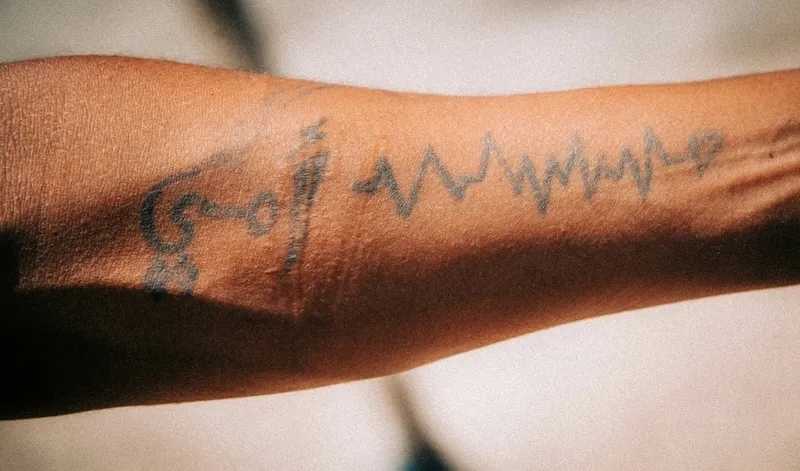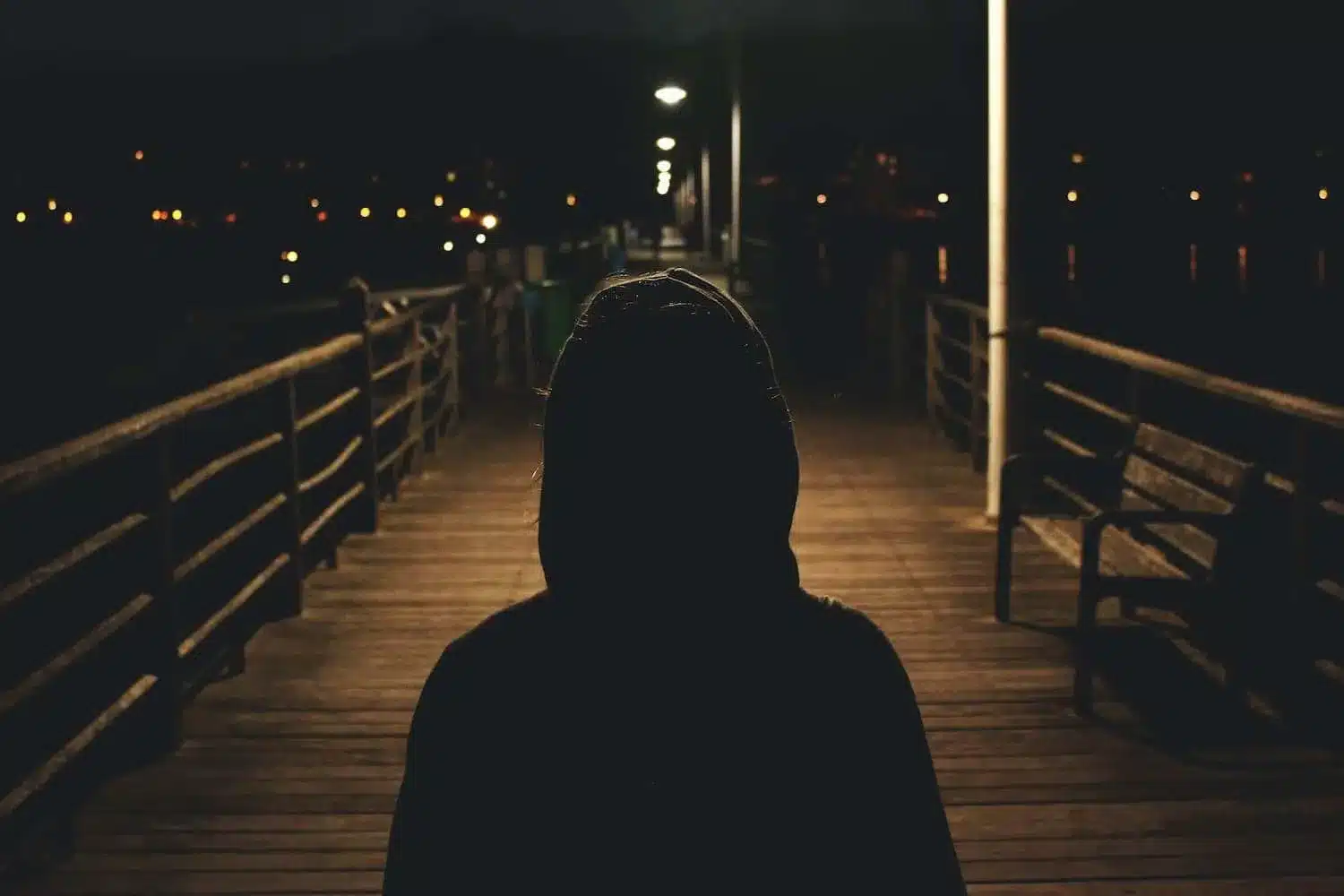A Lesson Learned
Narcissism, Brain Damage, and Waking Up

Before my brain injury, the word ‘narcissist’ was not part of my vocabulary. I never imagined I would end up entangled with someone who embodied those traits—let alone suffer brain damage as a result. But life has a way of teaching us lessons we never signed up for, often in the harshest ways possible.
According to Headway UK, 1 in 2 survivors of domestic abuse may live with a brain injury. That statistic is staggering, and it hits painfully close to home. It is a stark reminder that abuse is not just emotional or physical—it can leave lasting scars on the brain, altering lives in ways that are invisible to the naked eye.
This statistic resonated deeply with me. My story began with a dream—one that took me far from home, to a place I still love deeply, Cambodia.
Chasing a Dream, Facing a Nightmare
We all think we are invincible, especially when we leave our home countries to chase a dream. For me, that dream was Cambodia, a country I still love deeply, despite everything that happened. I will never let one person’s actions tarnish my feelings for this beautiful place.
Yes, I spent thousands of dollars at a Cambodian hospital, but I see it as money well spent. The healthcare system here needs support, and I am grateful for the care I received. This was not the country’s fault, it was mine for not recognising the severe psychological problems in someone I trusted.
Many expats criticise Cambodia’s healthcare system, expecting Western standards. But I have nothing but admiration for it. My life was saved by the incredible skill of Dr. Im Sophorn, a Cambodian neurosurgeon, and the team at Royal Rattanak Hospital (Royal Phnom Penh hospital). For that, I will always be grateful.
The Psychological Scars
Trust, Trauma, and Healing

Trusting someone after brain injury and emotional abuse is a fragile process. For me, it was not about love or dating, it was about psychological manipulation. We had already split up three months before the accident, but after it happened, she swooped in, telling everyone she had saved my life. The town saw her as a hero, but I now know the truth, she was rewriting the story to hide her own actions.
The betrayal left deep scars. How could someone I once trusted, someone who had caused so much pain, twist the narrative to make herself the saviour? It felt like a form of Stockholm Syndrome, where I was trapped in her web of lies even as they unravelled. The psychological toll was immense, shaping how I saw myself and others.
Waking Up in the Hospital
“Where Am I?”

When I first woke up in the hospital, I was surrounded by people. My mind was foggy, and nothing made sense. I looked at the faces around me and thought, Why is James Bond and that famous actress standing at the end of my bed? I felt annoyed because I couldn’t remember her name. What I didn’t know at the time was that they were my mum and dad.
The confusion was overwhelming. My brain was struggling to piece together the fragments of reality, and the people who had been my anchors for as long as I could remember now felt like strangers. It was as if my mind had been wiped clean, and I was seeing the world through a distorted lens.
As I scanned the room, I noticed a girl standing next to me. Just looking at her made me feel scared and annoyed. There was something about her presence that felt unsettling, though I couldn’t pinpoint why. I tried to ask who she was, but the words wouldn’t come out. My mind was racing with questions—Who is she? Why is she here? What’s happening to me?—but my body wouldn’t cooperate. My mouth wouldn’t form the words, and my voice felt like it was trapped somewhere deep inside me. Then, everything faded into a haze.
Trapped in a Cold, Metal Room
The next thing I remember is being in a cold, metal room with clanking sounds. People in white coats were standing over me, telling me to keep still. I felt a surge of anger—Who are they to tell me what to do?—but I couldn’t move, couldn’t speak. I was trapped in a body and mind that no longer felt like my own.
In that moment, I felt completely powerless. The anger I felt was less about the doctors and more about the situation I found myself in. I didn’t understand what had happened to me or why I couldn’t control my own body. It was as if I had been stripped of my autonomy, and all I could do was lie there, helpless, while the world moved around me.
Looking back, I realize how much that moment symbolized the early stages of my recovery. Brain injury doesn’t just affect your body—it shakes the very core of who you are. It takes away your sense of control, your ability to communicate, and even your memories. But it also forces you to rebuild, piece by piece, until you find your way back to yourself.
That girl by my bedside—the one who made me feel scared and annoyed—was someone I once knew, someone who had been a part of my life before the injury. But in that moment, she was just another stranger in a sea of unfamiliar faces. It wasn’t until much later that I understood the full weight of her presence and the role she played in my story.
Recovery
A Double-Edged Sword

Over the next few years, I recovered bit by bit, but the journey was far from easy. What made it even harder was my ex, who was supposedly caring for me while secretly abusing me—mentally and sometimes physically. With brain damage leaving me vulnerable, she controlled every aspect of my life. To the outside world, she was a saint; no one saw the manipulation, the lies, or the abuse happening behind closed doors.
She dosed me with tramadol every four hours, leaving me numb and voiceless. When she went away to a Vipassana retreat, I researched tramadol and stopped taking it. But when she returned and found out, she went insane. She locked me in the house, stabbed me in the hand, and tightened her control over my life. I had no voice, no way to fight back. It felt like I was drowning, with no one to hear my cries for help.
The brain damage left me unable to speak up for myself. Trusting someone after such betrayal is a fragile process. For me, it wasn’t about love or dating—it was about psychological manipulation. She twisted the narrative to make herself the protagonist, rewriting the story to hide her own actions.
The betrayal cut deep. How could someone I once trusted—someone who had caused so much pain—go to such lengths to control the narrative? The psychological scars lingered, shaping how I saw myself and others. It wasn’t just the brain injury or the physical damage; it was the emotional toll of realising how far she would go to maintain her facade.
But healing is possible. It starts with understanding that her manipulation was never your fault. It’s about reclaiming your story and recognising that your resilience is stronger than the lies that once held you captive.
The Return of Bad Memories and Psychological Struggles

As the years passed, I began to experience something unexpected: the return of bad memories and psychological struggles. Six years had gone by, but the memories hadn’t faded. Instead, they resurfaced with a vengeance. I started to feel like something was wrong, but I couldn’t pinpoint why.
The truth was, I had stopped dissociating. For years, I had buried painful events deep within me, refusing to face them. But as I began to take control of my life and heal, those suppressed memories came flooding back. The thoughts became clearer, and with them came a wave of fear and confusion.
Even at the beginning of my recovery, I had sensed that something wasn’t right. The stories my ex told me never added up, but I blamed my brain damage for the confusion. Whenever I questioned her, she would gaslight me, insisting she had never said the things I remembered.
I didn’t have the strength to speak out. She made me feel like I was always wrong, like my thoughts and memories couldn’t be trusted.
Messaging Emma
The Truth Begins to Surface
One day, I was overwhelmed by a terrible fear. It felt like my brain was screaming for answers. I knew I had to reach out to someone who might have them—my ex-girlfriend’s sister, Emma.
(I’ve changed the names to protect identities. This is a true story, and I don’t want to add to the hatred in the world by naming names.)
Emma and I had become friends over the years, and I knew she would help me. She had been on the end of the phone on the night of the accident, and I trusted her to tell me the truth.
When I messaged her, the floodgates opened. Emma revealed three shocking truths:
- Sissy had left me in the hospital and gone back to my house with my keys.
- She had caused the accident.
- She had left me to die in the first hospital I was taken to.
Suddenly, the pieces of that night started falling into place. The inconsistencies in her stories, the way she always deflected blame—it all made sense now. Even the fact that she wore a dress that night, something she never did, took on a sinister meaning.
This was supposed to be our first date after three months apart. She had called me, claiming she would kill herself if I didn’t see her. I went out of concern, but that decision nearly cost me my life.
Emma’s Story
Healing Through Connection

Emma was thrilled that I had contacted her. She had just been through another horrific ordeal with her sister and needed someone who truly understood what she was going through.
It felt like fate that I reached out when I did. Emma knew I had witnessed the abuse and anger her sister was capable of, and she felt a connection to me because of it. She told me she felt closer to me, knowing I had also endured something horrific at her sister’s hands.
Emma’s story is heartbreaking. It’s one thing to face abuse from a stranger, but when it comes from a blood relative—someone who’s supposed to love and protect you—it cuts deeper. She shared that her sister had tried to kidnap her son, a revelation that shook me to my core.
As we talked, Emma opened up about her recent studies on narcissism and psychopathy. She explained that her sister exhibited many of these traits, which explained why she had been in and out of psychiatric hospitals during their childhood.
Emma also revealed that her sister’s behaviour worsened when she stopped taking her medication—something that had happened while we were together. She mentioned that her sister had been diagnosed with either bipolar disorder or schizophrenia, adding another layer of complexity to her behaviour.
This conversation was a turning point for both of us. Sharing our experiences helped us heal and gave us the strength to move forward.
A Warning About Dangerous People

I believe it’s crucial for people to be aware of the signs of dangerous individuals. If you ever feel uncomfortable in a relationship, trust your instincts and educate yourself. Knowledge is power, and it could save your life.
A Lifelong Connection
Emma and I still stay in touch, though not as often as we’d like. I’ll always be there for her if she needs to talk, and I know she feels the same way. Talking—sharing our stories—has been one of the most healing parts of this journey. After the betrayal, I struggled to trust anyone, including myself. Talking and sharing helped me understand that not everyone would hurt me the way she did. I started small, leaning on close friends who consistently showed up for me.
Living with Trauma
12 Years Later

It’s been 12 years since my “accident,” but the trauma still lives with me. PTSD is not something that simply fades away—it’s a lifelong journey of coping and healing. If you’re struggling with PTSD, please know that you’re not alone, and help is available. Look at this link here – PTSD. Mindfulness meditation and self talk therapy were game-changers for me. They helped me process the trauma and reduce the intensity of flashbacks and anxiety.
I consider myself incredibly lucky. Against all odds, I recovered almost 100% from my coma and brain damage. Doctors and nurses told me I shouldn’t be alive, let alone walking and talking. But here I am, a living testament to resilience and the power of the human spirit.
I believe I was saved for a reason: to help others who are facing similar challenges. My story is proof that even in the darkest times, there is hope. I also believe in karma, and I know that one day, it will play its part.
Takeaway
Healing is a Lifelong Journey

Abuse and trauma leave deep scars, and healing from them takes time—often a lifetime. There’s no quick fix, but every day spent working on yourself is a step forward. Healing isn’t linear, and some days are harder than others. But every small step forward is a victory. If I can find light after darkness, so can you.
For those who have never experienced brain damage or abuse, it’s hard to understand the lasting impact it has. It’s not their fault; sometimes, you have to walk through the fire yourself to truly know how it feels.
If you have a friend who has suffered brain damage, be there for them. Take a few minutes out of your day to check in. Ask them privately, “How are you, truly?” and listen not just to their words, but to what they don’t say. Like one friend did for me. Read more here, Friends.
The same goes for friends who have suffered at the hands of a narcissist. Be there for them, no matter how much time has passed. Trauma doesn’t have an expiration date, and your support could mean the world to them.
If you or someone you know is experiencing abuse or trauma, please reach out to a trusted friend, therapist, or support organization. Here are some resources that may help:
– National Domestic Violence Hotline: https://www.thehotline.org/
– PTSD Support: https://www.ptsd.va.gov/
– Mental Health Helpline: National hotline
Books That Helped Me Heal
These books were invaluable in my recovery journey, and I hope they can help you too:
- The Happiness Hypothesis by Jonathan Haidt – Why change is so difficult and how to find lasting happiness.
- Atomic Habits by James Clear – A practical guide to building habits that transform your life.
- Breaking the Habit of Being Yourself by Joe Dispenza – A science-backed approach to rewiring your brain.
- Will I Ever Be Good Enough? by Dr. Karyl McBride – Healing from the effects of a narcissistic parent.
- Highly Sensitive Empaths and Narcissists by Victor Murphy – Empowering empaths to navigate narcissistic relationships.
- The Highly Sensitive Person’s Guide to Dealing with Toxic People by Shahida Arabi – Recognizing and responding to manipulation and toxic behavior.







